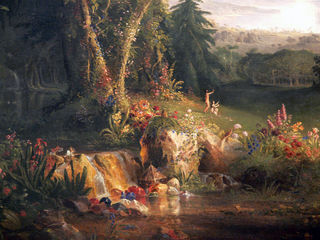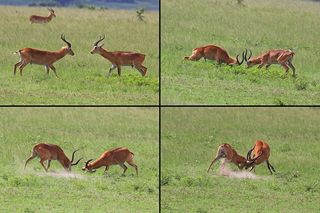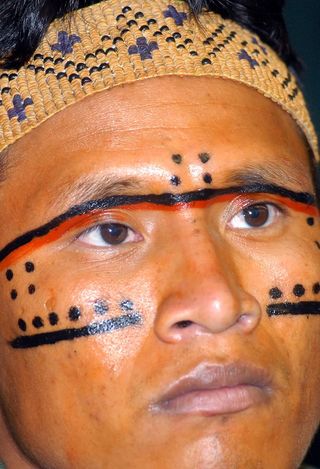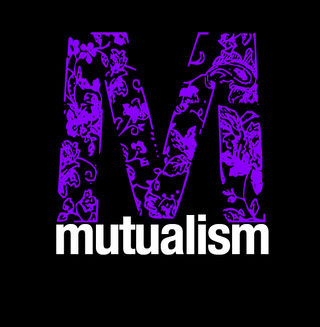Anger
Is Property a Form of Theft?
Some proposals from a 19th-century anarchist might reduce wealth inequality.
Posted February 8, 2019 Reviewed by Ekua Hagan
Last year I read an article by policy analyst and commentator Matt Bruenig titled, "Why Property Is Theft and Why It Matters." The title intrigued me. Was Bruenig going to argue that all of the property that I had legally acquired, using money I had earned by my labor, is actually a form of theft? That turned out to not be true. "Property is theft" had a narrow, particular meaning for the French politician who coined the phrase, Pierre Joseph Proudhon.
[A psychological side-lesson here is that it might be wise to suspend judgment on seemingly absurd phrases such as "property is theft" until we find out more about what the writer meant by the phrase. Who knows? We might learn something. Instead of immediately judging and rejecting everything that does not seem to support our preexisting assumptions, we might regard such ideas as interesting. But the psychology of the interesting is another topic for another time. Back to understanding how property could be theft.]
The kind of property that Proudhon considered theft was any case where a person owned a piece of land, a factory, or a company, and did no work, but still profited by the labor of the farmers, factory workers, or company employees working on or within the property. Such an owner is sometimes called a rentier. More generally, rentiers are people who do not work but live off of inherited wealth, investment income, interest fees charged to borrowers, and, more obviously, rent from tenants. Rentiers violate our evolved sense of moral fairness, namely, of equal give-and-take. Rentier-ism is an underlying cause of unfair wealth inequality. I blogged about this topic in a previous PT post and presented an extended paper on this topic at a conference several years ago.
I now saw that Bruenig's use of Proudhon's phrase "property is theft" made perfect sense from the perspective of an evolutionary theory of morality when "property" is defined as ownership by people who do not work yet become wealthier than the people from whom rent is collected.
That would be the end of the story and this blog post, except for the fact that, later in his article, Bruenig wrote something else that did not seem to me to be correct: "The fact is that at the initial point in time, everyone can access and use every single piece of the earth at their will. There are no restrictions. You can move about the world freely. Nobody can stop you...
"But then something curious happens. Somehow (regardless of how it's justified), individuals are permitted to appropriate pieces of the world privately. The upshot of such appropriation is that everyone else’s previously-existing ability to access and use the appropriated piece of the world is stolen from them without their consent. Those who do not go along with having their access and use stolen from them are met with violence. This is theft. Access and use, both valuable things, are taken from people at the barrel of a gun."
The problem with Bruenig's vision is that it seems to be a hopelessly romantic fiction. There was never a time when every human being could "access and use every single piece of earth at their will." The truth is that any "piece of the earth" at any point in time contains limited resources. This would make it impossible for "everyone [to] access and use the resources on "every single piece of earth." Imagine, if you will, that all legal definitions of land ownership have been eliminated around the world, and then imagine that all seven-and-a-half billion human beings descend upon Kansas to "access and use" what is there. I am pretty sure that by the time people from the surrounding states got their hands on what was in Kansas, there would be nothing left for people traveling there from other continents around the globe.

Many species are territorial
The truth about property is that individual organisms from a variety of species have always competed for what was available on any plot of land (or area of water—let's not be terrestrial-centric). So, for those who argue that property is theft based on the idea that "God created the earth and gave it to mankind in common to use" (as Proudhon apparently did), or the idea that once upon a time "everyone can access and use every single piece of the earth at their will" (as Bruenig believes), their argument is based upon an Eden that never existed.
For fun (and hopefully education, too), though, let's assume that Eden did exist. Knowing what ethologists have taught us about the evolution of territoriality in other animals as well as human beings, let's explore answers to the question: At what point in the evolution of life did property become theft?

Many social species are territorial. Territoriality apparently evolved as a mechanism, along with others such as dominance hierarchies and ritualized aggression, that minimizes the need for mortal combat any time two individuals want the same limited resource on an area of land. Sometimes the resource is food or water; sometimes it is a mate. Male Uganda kob, for example, engage in ritualized battles that involve a lot of butting and pushing but rarely serious injury. Males attempt to mate with female kob that enter their territories and will circle around the female to try to keep her in the territory if she attempts to leave. But if she does cross the territorial boundary, he stops, staying within his territory. The territorial instinct overrules the instinct to mate. The result of kob territoriality is that many males repeatedly defend their territories but never mate because females are not interested. Also, there are many males that roam outside of the mating territories in what is called the bachelor herd. They never lay claim to a piece of property and consequently never reproduce. Are the kob who do establish and maintain a territory attractive to females engaging in theft because other male kob lose out on a chance to mate?
Kob social organization may not look attractive from a human perspective. For all the effort that male kob put into defending their territories, they are not guaranteed a mate. And kob in the bachelor herd never even get a chance to enter into the jousting for territories. We might think that this isn't fair, but the life of the Uganda kob is what it is. It is what is natural for kob.
Many territorial schemes can be found in different social species. Cats have territories that shift over hours of the day. They can assess whether another cat's time-based claim to a territory is up by the strength of the smell of urine that the other cat uses to mark its territory. Territories in some species stay relatively fixed, but in others, the boundaries of territories change as the animals move about to hunt or forage. Some of our primate relatives (chimpanzees, baboons) are territorial; others (gorillas, orangutans) are not. Are all territorial animals thieves?
Human beings are not territorial in exactly the same way as any other social species, including other primates, but it is clear enough throughout the history of humans and our pre-human ancestors that we have claimed resources on areas of land. We can't take seriously ancient myths about God gifting everything on earth to the human race collectively. That's simply not how it happened. Hominids began migrating out of Africa about two million years ago, eventually laying claim to areas previously unoccupied by hominids: what we now call Asia, Europe, and the Americas. Were they stealing property? If so, from whom? Other species? Living creatures, including plants, have always fought for resources on areas of land. Trees evolved to grow higher, "stealing" the sunlight before it reached shorter trees. Apparently, nobody told plants that the entire earth was given to all plants to share freely and equally.
Human ancestors who resemble us began migrating out of Africa about 70,000 years ago, occasionally interbreeding with other varieties of Homo, but also sometimes killing them. It is difficult to know exactly the degree to which our ancestors fought over property they claimed, but surely it happened. Sadly, (outside of sporting events) humans do not employ ritualized aggression like many other more civilized social species but choose instead to acquire property by killing. Is this when property = theft began?

Skirmishes between human bands that involve killing occur in the Yąnomamö, a living hunter-gatherer group, and probably occurred in ancient hunter-gatherers as well. Larger-scale war is thought to have arisen with the advent of agriculture. Agricultural societies are clearly attached to areas of land or property, and the accumulation of goods in such societies makes all-out warfare a viable way to acquire goods. The earliest evidence we have for war is from skeletons in Kenya from about 10,000 years ago. Is this when property = theft began?
Before I make some final points, let me be clear about my own thoughts about property. First, although the best label I've found for myself is "libertarian," I am not a "propertarian"—that is, I don't share the obsession with property that so many libertarians have. I see my existence on this planet as infinitely short, so I don't feel as if I own any property as much as if I am a temporary steward or custodian of my so-called property. I don't own my body; I am my body. I don't see property as the source of my freedom.
Next, despite all of my references to conflicts over territory in nature, I am not promoting Social Darwinism here, nor am I falling into the naturalistic fallacy ("if it is natural, it is good"). Just because we human beings have acquired our unique position, partly because of those who were most successful in winning wars, conquering indigenous people, and enslaving the working class, I do not want this way of life to continue. I am not at all happy with the obscenely unequal distribution of wealth around the world. I believe that there are currently a number of forms of wealth acquisition (primarily rentier) that unfairly favor those who are already wealthy and that do not contribute to the general well-being of the human race. I think that the economic system of the United States needs reform. I am not sure exactly what reforms would work the best, but I am pretty sure they would not involve embracing the romantic communist myth that everything can be owned equally by everyone. We need to look realistically at the way that property has actually functioned in the evolution of life forms if we want to create a better, alternative way of living.

Interestingly, a careful reading of Proudhon shows that he might have had some workable, realistic ideas, consistent with human nature and evolution. He did not believe that economic change could be obtained by revolution, but only by gradually increasing acceptance of his proposals. He believed that some wealth inequality was inevitable and acceptable; his long-term goal was simply decreasing grotesque wealth inequality. As an anarchist, he did not see government ownership of the means of production (socialism) as a solution, although he accepted the inevitability of government because there will always be people who want to regulate the behavior of others. His goal was simply to minimize governmental control. His hope was that people would see and embrace the wisdom of economic mutualism, which involves voluntary, cooperative, mutual assistance among laborers, resulting in benefits to all workers. There would be no violent overthrow of the government or economic system, but rather a gradual replacement of the politico-economic system as mutualism slowly increased over time.
Evolutionary scientists tell us that mutualism describes the character of human economies for most of human history and that our moral sensibilities about fairness evolved from mutualism. So perhaps Proudhon was correct. Perhaps mutualism can re-emerge in some modern guise.
I am so grateful that I found the title "Property as Theft and Why It Matters" interesting rather than absurd, leading me to read it (and learn for the first time about Proudhon's ideas) rather than rejecting the article out of hand.




